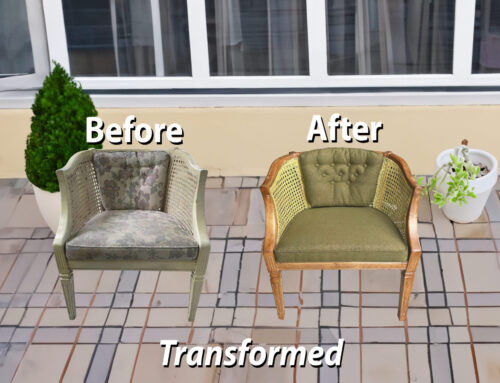The gospels are replete with many wonderful narratives that include Jesus’s personal encounters with people. People like Nicodemus (John 3:1-21), the rich young ruler (Luke 19:18-30), Zaccheus (Luke 19:1-10), blind Bartimaeus (Mark 10:45-24), and the focus of today’s post, the Samaritan Woman (John 4:1-42).
The story of Jesus’s encounter with the woman from Samaria is fascinating on many fronts. I also find it particularly interesting to note that His conversation with her is actually His longest with any individual in the gospels. This fact alone piques my attention, perhaps it does yours as well.
While there are many rich layers to this lengthy discussion, for the purposes of highlighting the evangelistic thrust of the story, I will focus my attention on only two aspects of the story. First, Jesus’s relational witnessing approach, and second, the woman’s positive response and immediate action. Let’s begin…
The Trek to Samaria
The narrative begins by informing the reader that Jesus had to go to Samaria (John 4:4). I find this intriguing as obviously He could have gone any other way, that is if He wanted to. But the fact is Jesus always, and only did what he saw the Father doing. (John 5:19). By this we can surmise the trip to Samaria was actually the Father’s idea. And this also provides us with a glimpse into the Father’s heart. For God so loved the world), that He sent His Son, (John 3:16). And on this day, in the Samaritan village of Sychar, God sent Jesus to a broken, hurting woman on her way to a well.
The Well
When Jesus finally reaches Sychar, we are told it was about noontime and he is tired. This is understandable as the journey from Judea to Samaria was about 30 miles. Eventually Jesus sits by the patriarch Jacob’s well and rests. He was alone, but not for long. Soon after arriving, a woman joined him to draw water from the well. Seizing the opportunity, Jesus asks the woman for a drink. This is surprising to her as men don’t generally associate with women, at least other than family. And further this man is clearly Jewish and Jews do not even associate with Samaritans. But perhaps even more startling to her is that unlike the requests of other men, this man is simply asking for a cup of water.
An Honest Question
Fully aware she was defying cultural and religious barriers, alone with a man, and a Jewish man at that, somehow the woman felt safe enough to pose this question, “You are a Jew, and I am a Samaritan woman. Why are you asking me for a drink?” (John 4:9 NLT).
This is a sincere question, and one that Jesus is prepared to answer, but not in the way you might think, and certainly not in the way the woman would have expected. Instead, He alludes to a special Gift that God has for her. And further He tells her she has no idea who she is conversing with. And lastly, He reveals that simply by asking, she can receive living water.
If you only knew the gift God has for you and who you are speaking to, you would ask me, and I would give you living water. (John 4:10 NLT)
A Discussion About Water
If there’s one thing this woman knows it’s certainly water. In fact, the well in her town is a focal point in the community; a place where the locals gather. It’s a place she goes every day, alone and unseen, to draw water. If this man desires to initiate a discussion, and perhaps even challenge her knowledge of water, she’s ready to go. So, she replies practically to Jesus’s statement, “Sir, you don’t have a rope or a bucket…and this well is very deep.” (John 4:11 NLT).
She then continues with a series of probing questions of her own (John 4:11-12 NLT):
- Where would you get this living water?
- Do you think you’re greater than our ancestor Jacob, who gave us this well?
- How can you offer better water than he [Jacob] and his sons and his animals enjoyed?
Come and see a man who told me everything I ever did! Could he possibly be the Messiah?
John 4:29 NLT
Once again, Jesus responds not by answering, but instead by providing further information regarding a type of water this woman obviously knows nothing about.
Those who drink the water I give will never be thirsty again. It becomes a fresh, bubbling spring within them, giving them eternal life. (John 4:14 NLT)
At this point that the woman is truly intrigued with the potential of no longer having to draw water, alone and ashamed in the heat of the day, and of never being thirsty again! Please, sir, give me this water! (John 4:15 NLT). But Jesus doesn’t answer her request, rather He makes a request of her.
Truth Revealed
At this point there is a major shift in the conversation that began with water, but has now turned to something quite different. Suddenly, and for no apparent reason, Jesus says to the woman, “Go and get your husband.” (John 4:16 NLT). If the woman was startled, confused, or perhaps even hurt by the surprising question, she doesn’t let on. Instead, she answers honestly, “I don’t have a husband.” (John 4:16 NLT).
But of course, Jesus already knew this, and His intent was never to shame her, but rather to free her, so He continues:
You’re right! You don’t have a husband— for you have had five husbands, and you aren’t even married to the man you’re living with now. You certainly spoke the truth! (John 4:17-18 NLT)
There it is, out in the open. The woman’s shameful secret had been revealed. But how could this man possibly know her backstory? Did someone talk to Him? Is it blatantly obvious that she has a sordid past? Or could this man possibly be a prophet? Ah yes, this must be true. Now confident in this conclusion the woman continues:
Sir, the woman said, you must be a prophet. So tell me, why is it that you Jews insist that Jerusalem is the only place of worship, while we Samaritans claim it is here at Mount Gerizim, where our ancestors worshiped? (John 4:19-20 NLT)
I am the Messiah
For the final time, Jesus answers the woman, but again, not in a way she would ever have imagined. She had no earthly idea that on this day, a day like every other, the trajectory of her dark, sad life would be dramatically altered forever. What she didn’t know, but learned in that moment, was the God who created the mountain where her ancestors worshiped along with the well, the water, the Jews, and the Samaritans, was the One and only True God. He was a faithful Father that loved her so much He sent His Son to liberate, free, forgive, and reveal to her a new and beautiful way of life.
In response to Jesus’s lengthy description regarding true worship, authentic worshipers, and what the Father is seeking, the woman replied, “I know the Messiah is coming—the one who is called Christ. When he comes, he will explain everything to us.” (John 4:25 NLT).
And then Jesus told her, “I Am the Messiah!” (John 4:26).
Come and See
That’s all she needed to hear. She was sold. No further explanations required. The truth she longed to believe, and the God that she desired to know, now stood before her with love in His eyes. Immediately shame was gone, peace was present, and a supernatural joy the woman had never experienced bubbled inside her.
And with that she dropped her water jar, left Jesus, and ran into the village sharing her story with the very people who had shunned, overlooked, and condemned her all her life. She was truly free. She was clean. And she was whole!
Come and see a man who told me everything I ever did! Could he possibly be the Messiah? (John 4:29 NLT)
And immediately “the people came streaming from the village to see him.” (John 4:30 NLT).
By the end of this story a woman who was previously hopeless was given a new life. Her thirst for true love had now been quenched forever. And through her bold and confident declaration an entire village came to the knowledge that Jesus was indeed the Messiah!
Then they [the villagers] said to the woman, “Now we believe, not just because of what you told us, but because we have heard him ourselves. Now we know that he is indeed the Savior of the world.” (John 4:42 NLT)
This beautiful narrative serves as a reminder that God who authors every human story, transforms, completes, and uses them in ways we never thought possible.
Extend grace to others! If you’ve been encouraged, strengthened, or edified by this week’s post, please consider sharing Grace Notes For You with a friend.
Reflect
What aspect of the Samaritan woman’s story inspires you the most? Ponder your response and transform it into a prayer of gratitude.
Encourage
Friends, please consider sharing your response to this question with other Grace Notes for You subscribers this week.
In what specific ways has your life story been dramatically impacted since you met Jesus? Like the woman of Samaria, be courageous and share your “Come and See” story with others this week HERE.
Pray
Father God, thank you for our story that began and will one day end with you. Thank you for reminding us through your Holy Scripture of your Sovereign plan and purpose for our lives. Thank you for being an ever-present God who is with us, for us, and loves us. Embolden us to confidently share the story of your great love with others.
In Jesus’s Name we pray, Amen.





